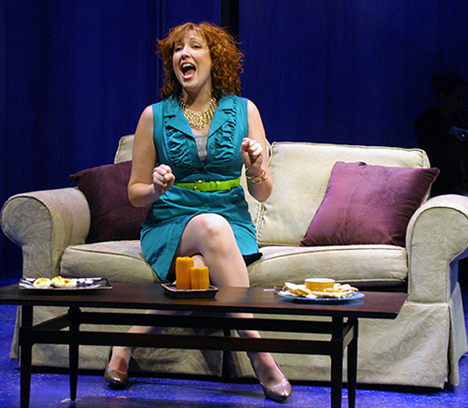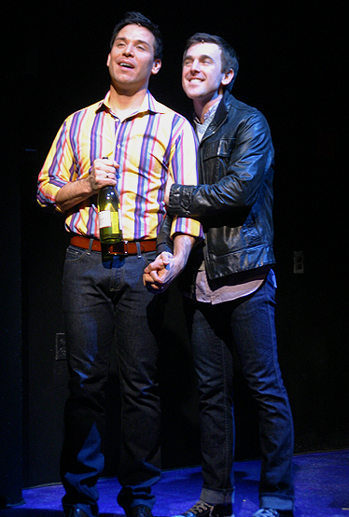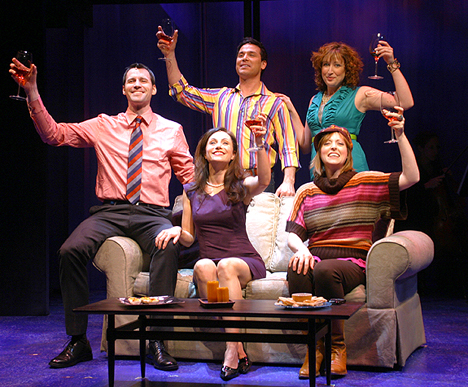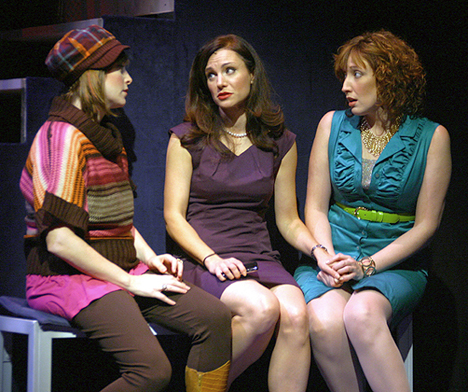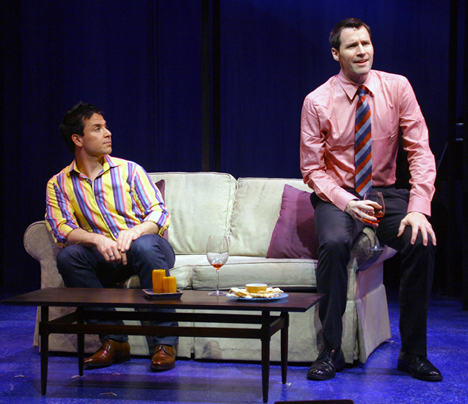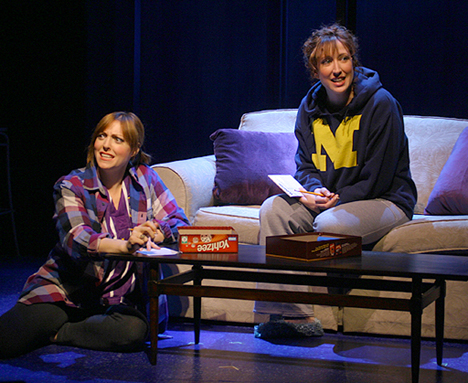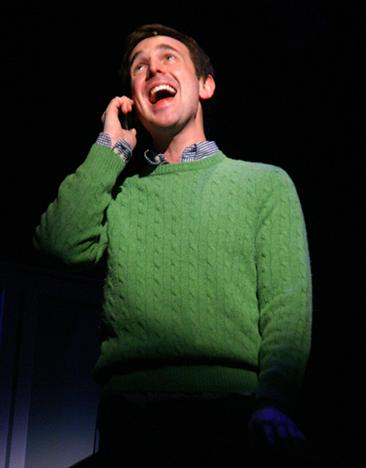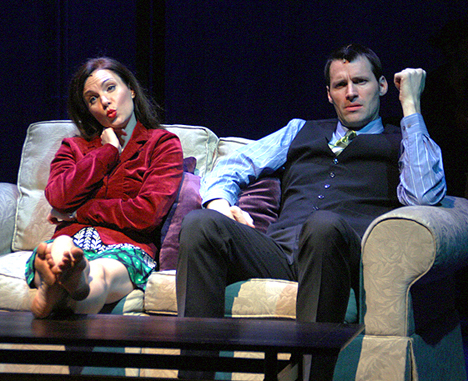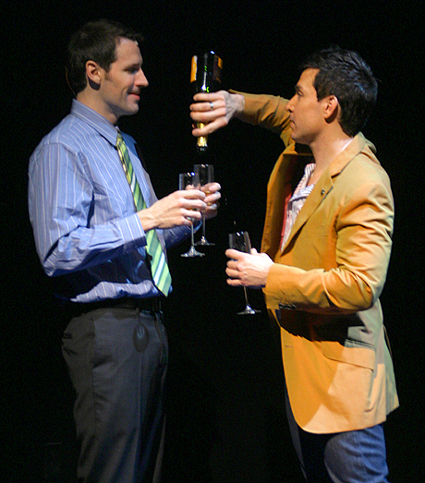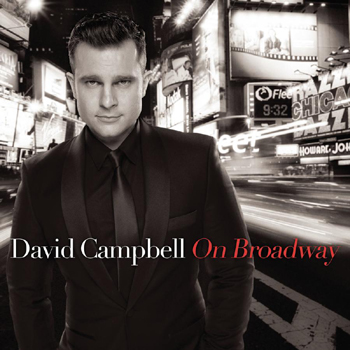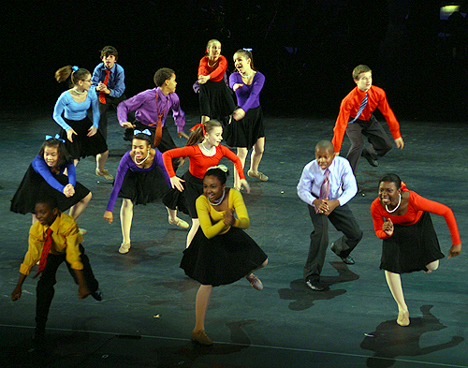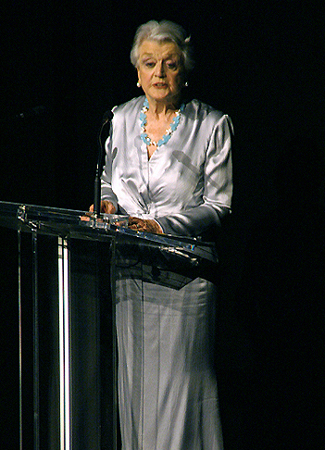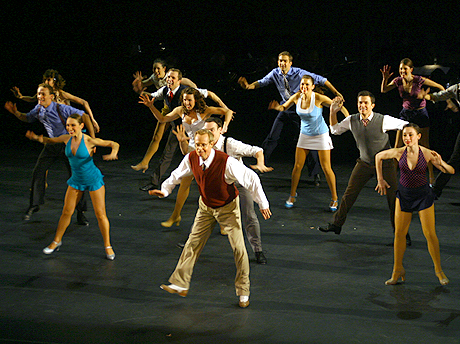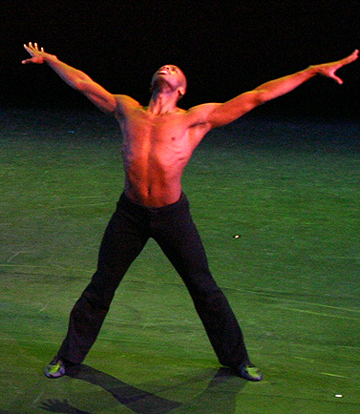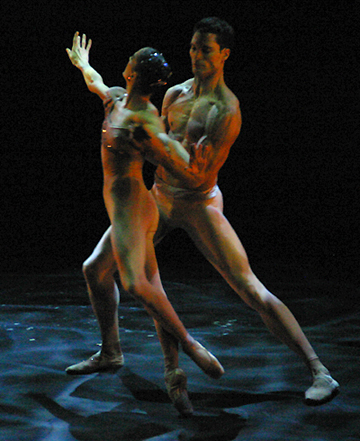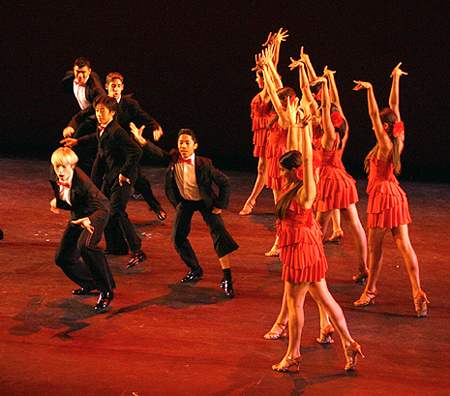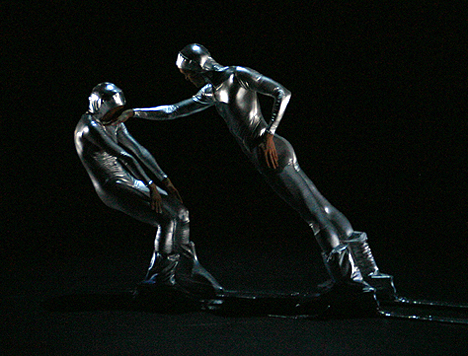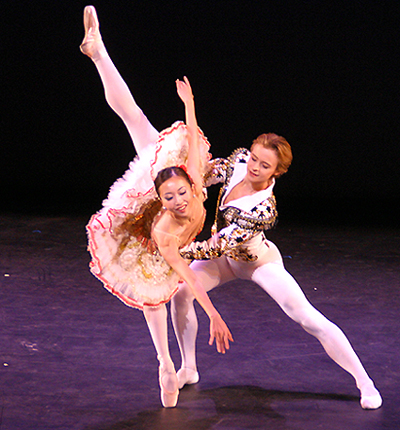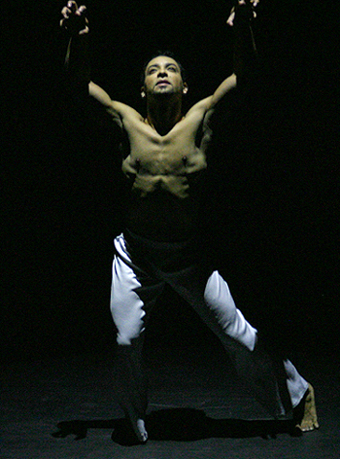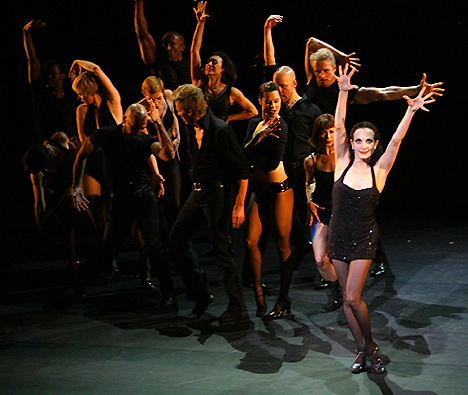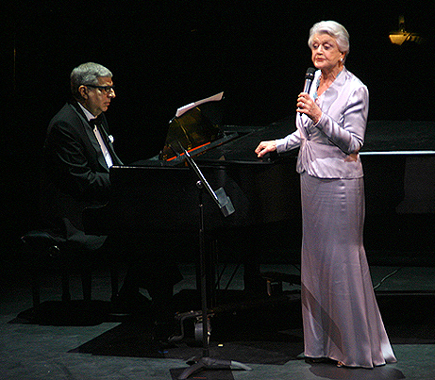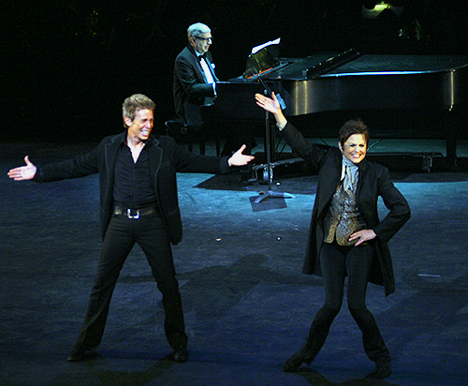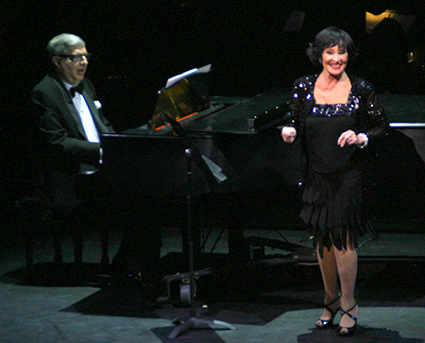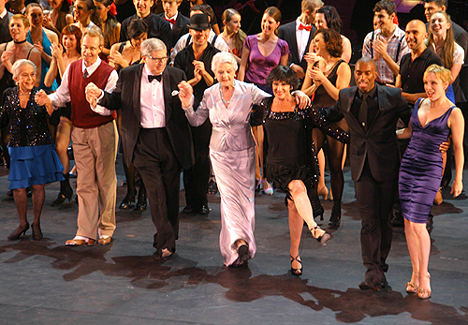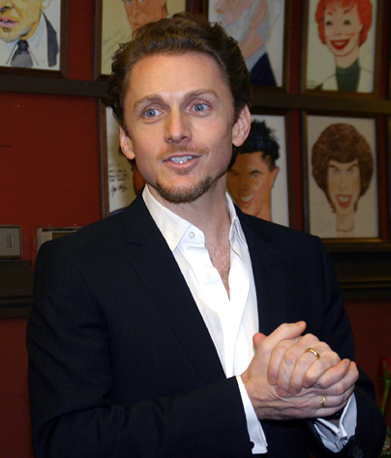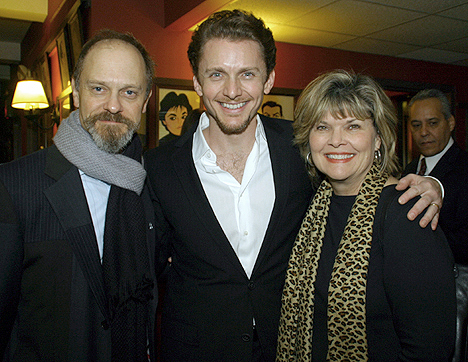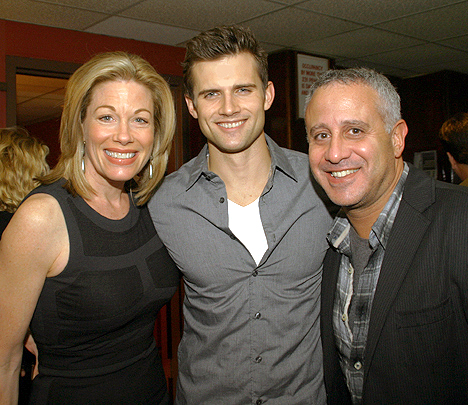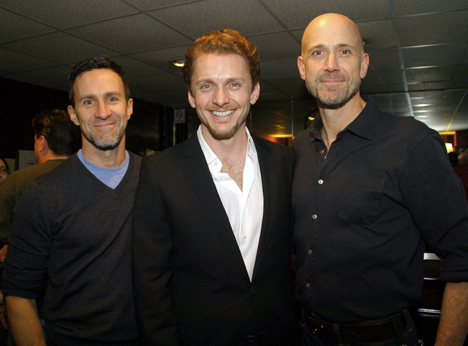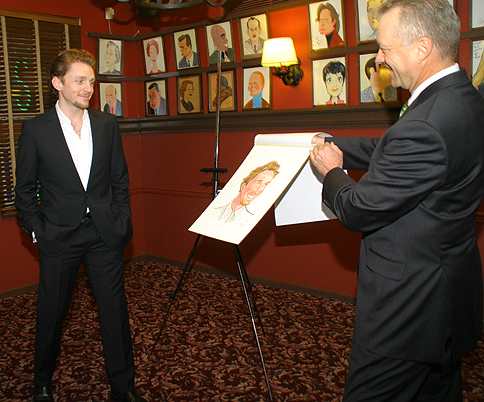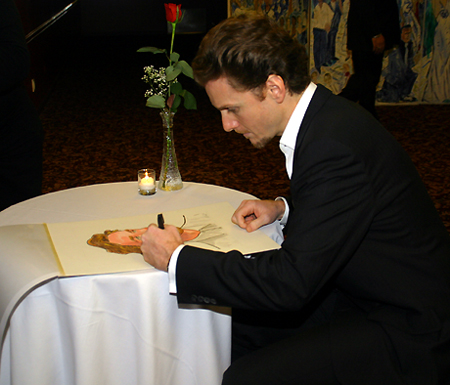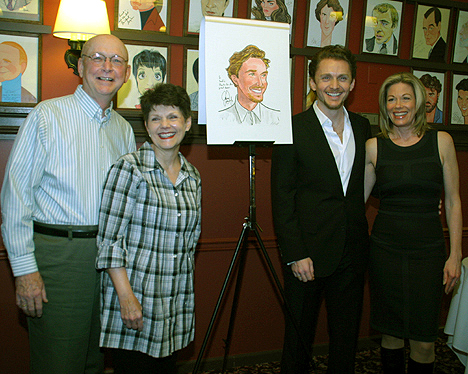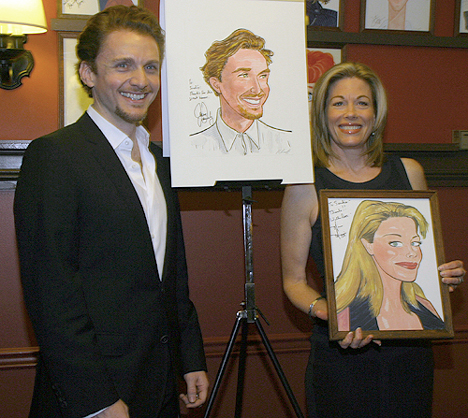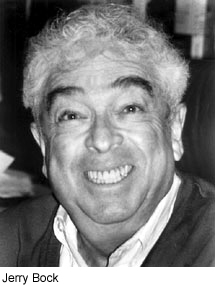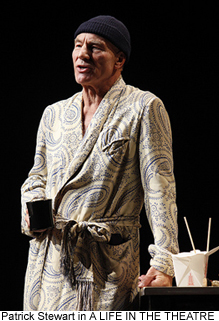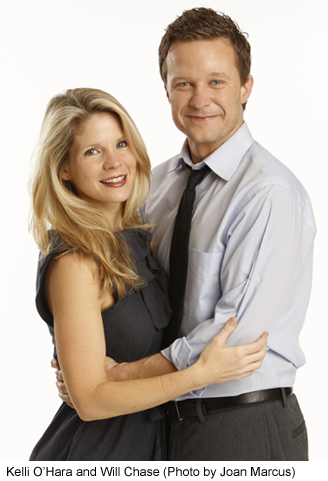
A new Broadway musical written as a vehicle for a star who was not known for her singing and had never before done a musical, with a story and characters created completely from scratch rather than adapted from a well known play, film, or novel? Sounds like a recipe for disaster. Yet Bells Are Ringing was a big hit in 1956 -- because the composer was Jule Styne, the lyricists-book writers were Betty Comden and Adolph Green, and the star was the one and only Judy Holliday at her most luminous.
The central character of Ella Peterson, a telephone answering service operator who can't keep herself from getting involved in the lives of her clients, was specifically tailored to Holliday's unique talents and personality by Comden and Green. (The three had cavorted together years earlier in a nightclub act called The Revuers, before any of them had gained fame.) But the show has proven to have a life beyond Holliday, because -- star vehicle or not -- it has a funny, heartfelt, essentially timeless story and a wonderful score.
This coming weekend, Bells returns to the New York stage in a City Center Encores! production directed by Kathleen Marshall, with a cast featuring Judy Kaye as Ella's cousin Sue, David Pittu as a bookie with a fiendishly clever scheme, Bobby Cannavale as a Brando-esque wanna-be actor, and Brad Oscar as a dentist who yearns to be a songwriter. The show is headlined by two of the brightest talents on the musical theater scene: Kelli O'Hara as Ella and Will Chase as her beloved Jeffrey Moss, who doesn't discover until the end of the show that she's the "mom" who's been giving him much needed moral support over the phone. I spoke to this happy stage couple recently during a rehearsal break.
********************
BROADWAYSTARS: I've loved Bells Are Ringing ever since I played Sandor in high school. How do you guys feel about the show?
KELLI O'HARA: We think it's great. So much fun.
WILL CHASE: It's so smart and clever. When you hear Bells Are Ringing, you think, "How cute and funny, the answering service and all that." But when you get into it you realize how clever Comden and Green were to write numbers like "Drop That Name" and the one where the bookies use the names of classical composers as a code.
STARS: When Comden and Green were doing press for the last revival, I asked them about that amazing moment when the bookies sing "Hialeah!" to the tune of the "Hallelujah Chorus." The joke is so perfect, I wondered if they started with that and then wrote the whole number around it. But Betty said, "No! We didn't come up with it until we were working through the lyrics, and when we got to it, we started screaming for joy."
WILL: I'd love to see a video of the two of them working. I'll bet it's just like the image we all have of him running around the room, throwing shit around, coming up with ideas, and her sitting there typing.
STARS: The major changes in technology that have occurred since the mid '50s was a subject that naturally came up when Bells was revived on Broadway in 2001, and of course, there have been more huge changes since then in terms of social networking via the Internet.
KELLI: I think that makes the show all the more refreshing. I'm almost overwhelmed by how fast everything goes now and how much is happening all the time. I feel like I'm on my iPhone 24/7.
WILL: To me, the stakes go way up when you're just a voice on the other end of the phone. Now, I can know what you look like within seconds through Facebook or Google.
KELLI: Things are so unfocused today. I think it was a much more focused world back then, and the characters are more relatable because of that. I've done so many revivals, and there are always these opinions about how "outdated" the shows are going to be, but I never spend too much time worrying about that. If you have a strong central story, it will be okay as long as you honor it. People are still people, and they're still trying to fall in love and be happy.
WILL: The answering service opens up so much opportunity for humor, with Ella disguising her voice. This woman comes into my life, and I don't know who she is till the very end of the show.
STARS: You guys have worked together before, as Laurey and Curly in Oklahoma!, and I got to interview you right before the opening. How was that experience?
WILL: It was one of the most nerve-wracking things I've ever done. To sing the song "Oklahoma!" in the state of Oklahoma? For the centennial? Everybody stands up, like it's the national anthem. I was terrified of screwing up the words.
KELLI: I'm from Oklahoma, so everybody I've ever known in my entire life came to see the show. People I knew in elementary school were there.
STARS: Will, where are you from?
WILL: Kentucky.
KELLI: Same difference. We're both rednecks. We're trying not to be too southern in this show. When we're just talking together, we both lapse into our accents.
STARS: So, Kelli, is The Party's Over one of the greatest songs ever written for the musical theater?
KELLI: Yes. But again, it's a simple song. There's so much simplicity in this show.
WILL: "Just in Time" is another example. Sydney Chaplin [the original Jeff Moss] had a limited vocal range, and "Just in Time" is only two notes for, like, the first 12 measures, but it's such a beautiful moment.
STARS: Kelli, are you having fun with all the voices that Ella adopts on the phone to pretend she's other people?
KELLI: Absolutely!
WILL: Before this show, I only knew Kelli as one thing. Then we got into the rehearsal room and it turns out that she's the goofiest person on the planet.
KELLI: Sopranos are never allowed to be goofy. You've got to play the alto roles if you want to do that.
STARS: Seems like you've found the secret.
KELLI: Yeah, I guess -- as long as people like Kathleen Marshall keep giving me these parts. By the way, Will can also be pretty goofy in rehearsal. There's a line in the stage directions that describes Jeff the first time Ella sees him. It says "He's beautiful." Will makes us read that line out loud whenever we get to it.
WILL: I just want to make sure we're all on the same page.
[The City Center Encores! production of Bells Are Ringing will run November 18-21. For more information, click here]
